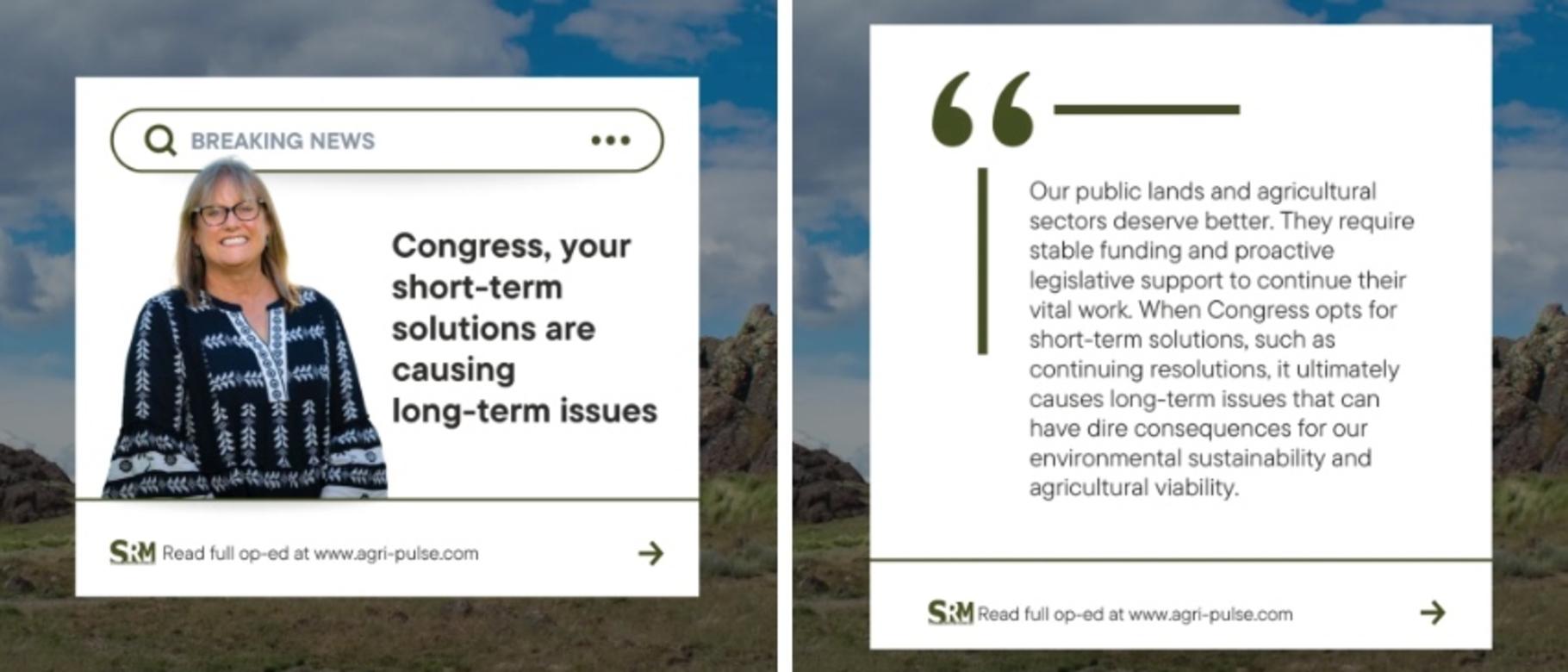Opinion: Congress, your short-term solutions are causing long-term issues

This uncertainty is hamstringing agencies crucial for the stewardship of our public lands.
Without the necessary personnel and resources, we face inevitable long-term effects on rangelands, forests, and grasslands. A decreased workforce translates to reduced management, which could critically impact future fire seasons.
The lack of proactive land management may lead to uncontrolled wildfires, decimating vast stretches of our forests and rangelands and posing critical risks to wildlife and human safety.
The prolonged uncertainty, inefficiency, and lack of timely action result in higher unforeseen costs through emergency responses and missed opportunities for proactive management. Ultimately, these delays could be more costly to the taxpayer than the funding amounts Congress is battling over.
It is crucial to emphasize that the hands of our land management agencies are tied, not through any fault of their own, but due to Congress’s failure to pass necessary appropriations timely. Consequently, these agencies are forced to scale back their functions, attempting to do more with less under financial instability.
A prominent example is the United States Forest Service, which has been compelled to rescind job offers and is unable to hire necessary personnel. These vital employees significantly contribute to land management, monitoring, and maintenance activities. However, this issue is not limited to one agency, and several critical functions are stalled due to the lack of stable funding.
Budget shortfalls create a trickle-down effect, meaning the burden of congressional inaction is unfairly shifted onto the agencies and the communities they serve. Unable to do their work effectively, many positive initiatives are now at a standstill. This situation extends beyond the agencies and affects people in the countryside, such as allotment permittees, who are frustrated by the lack of a functioning agency.
The dilemma extends to agriculture as well. The failure to pass the farm bill, an essential funding package, further exemplifies Congress’s legislative gridlock. Instead of moving forward on critical funding, Congress is embroiled in internal squabbles to the detriment of farmers, ranchers, and our food security.
Our public lands and agricultural sectors deserve better. They require stable funding and proactive legislative support to continue their vital work. When Congress opts for short-term solutions, such as continuing resolutions, it ultimately causes long-term issues that can have dire consequences for our environmental sustainability and agricultural viability.
As leaders responsible for the health of our natural resources and the environment, we call upon Congress to deliver long-term, sustainable solutions by promptly passing the necessary appropriations and the farm bill before the 118th Congress comes to a close. The well-being and future of our public lands and agricultural communities depend on it.
Let us not allow congressional stagnation to jeopardize the stewardship of our lands and livelihoods. It is time for decisive action to ensure that our agencies have the resources they need to manage and sustain our rangelands effectively.
Karen Hickman, president of the Society for Range Management, is a professor and director of environmental science and undergraduate research at Oklahoma State University.